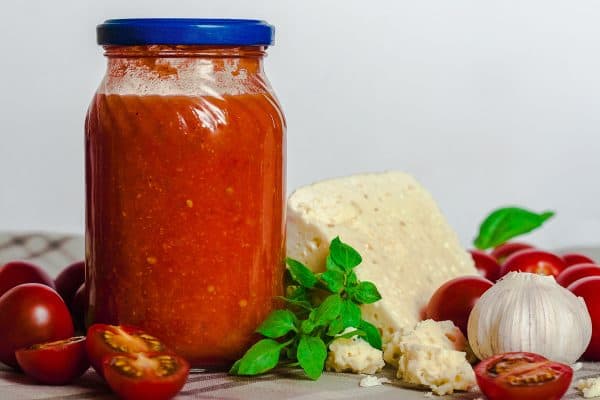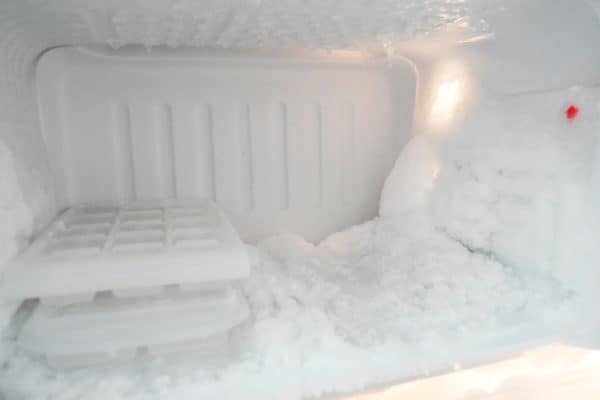The apple tree in your backyard bore an abundance of fruit. Or maybe you filled your basket with apples at the weekend farmer's market. Nonetheless, you now have more apples than you can handle. Don't worry because you can store the fruit in your freezer. But can you freeze whole apples? Here's what industry experts suggest.
You can freeze whole apples. Storing apples in the freezer properly can extend their shelf life up to 12 months. The freezer should also provide consistent freezing temperatures to maintain the fruits’ freshness.
Freezing apples whole needs careful planning to enjoy the best results. Kindly continue reading to know what you can do to ensure the freshness of whole apples kept inside a freezer.
NOTE: WE MAY GET A COMMISSION IF YOU DECIDE TO MAKE A PURCHASE THROUGH THESE LINKS. THERE'S ADDITIONAL NO COST TO YOU. CHECK THE BOTTOM OF THE PAGE FOR MORE INFORMATION.
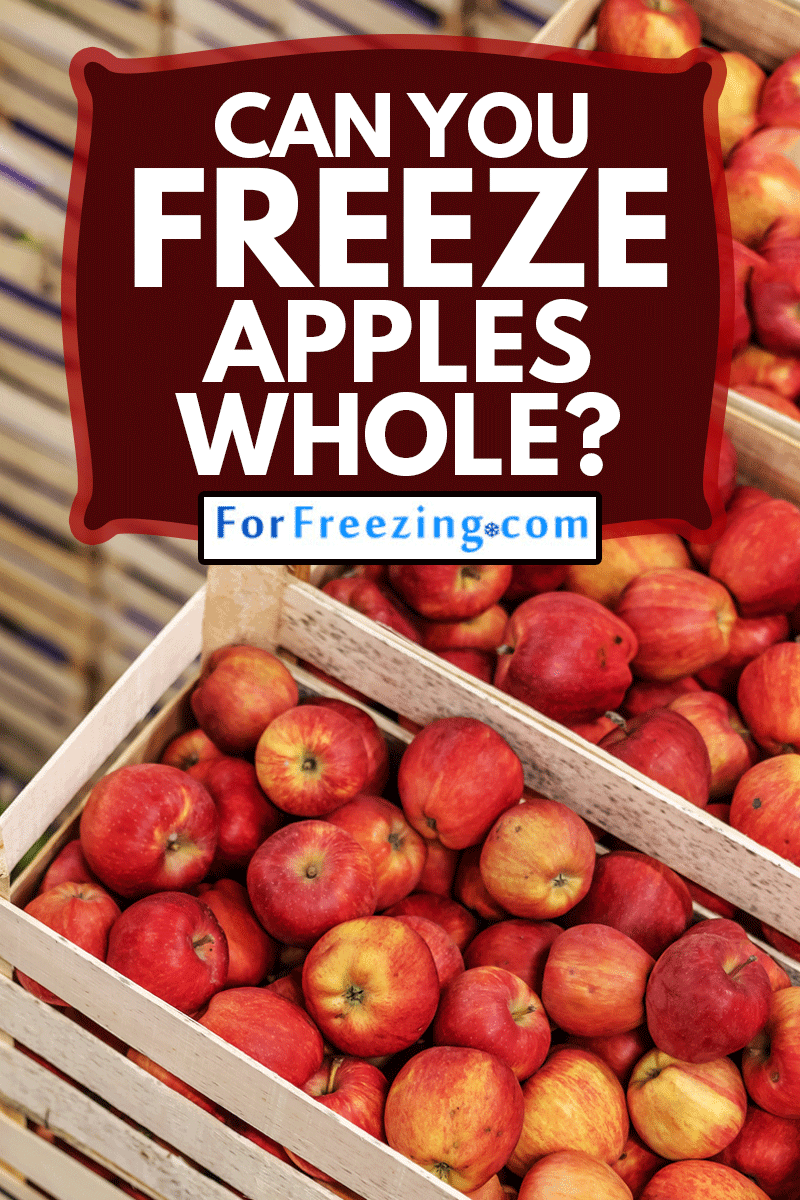
What Apples Are Best For Freezing?
According to a report from the Food and Agriculture Organization (FAO), freezing preserves the quality of agricultural products over extended periods. However, some apple variants maintain their freshness better than others when frozen. Apples with a strong texture and flavor are the best choices for freezing.
Jonagold Apples
A cross between the Jonathan and Golden Delicious apple, the Jonagold apple has a sweet yet slightly tart-like taste. It also has a scent that’s similar to baked apple pies. Its texture is crisp, making it an ideal choice for baking pies. Hard ciders and salad dressings made from Jonagold apples also produce zesty flavors. Harvest Jonagold apples from September to January for optimal freshness.
Golden Delicious Apples
Known for its pale green to golden shades, the whole Golden Delicious apple is another excellent option for freezing. This type of apple is small to medium in size with a firm yet crisp flesh. Smelling it produces a balance of sweet and honey-like aroma. Use Golden Delicious apples for diet-friendly recipes since they’re low in calories. These apples are at their freshest from September to October.
Cortland Apples
Originating from New York, Cortland apples have the Ben Davis and McIntosh apples as their parents. These apples are resistant to browning, making them excellent options when eaten raw or mixed in fruit salads. In the summer, Cortland apple trees decorate gardens with their beautiful pink and white blossoms. The best time to harvest Cortland apples is from mid to late September.
Empire Apples
The crisp and juicy flesh of the Empire apple makes it a great and healthy choice to satisfy sweet cravings. As a member of the rose family, this apple variant has a mix of features found in its parents, which are the Red Delicious and McIntosh apples. Empire apples have high resistance to fireblight, a common disease in the rose family. Harvest and freeze whole Empire apples from September to October to enjoy their ideal freshness and flavor.
Freezing Whole Apples
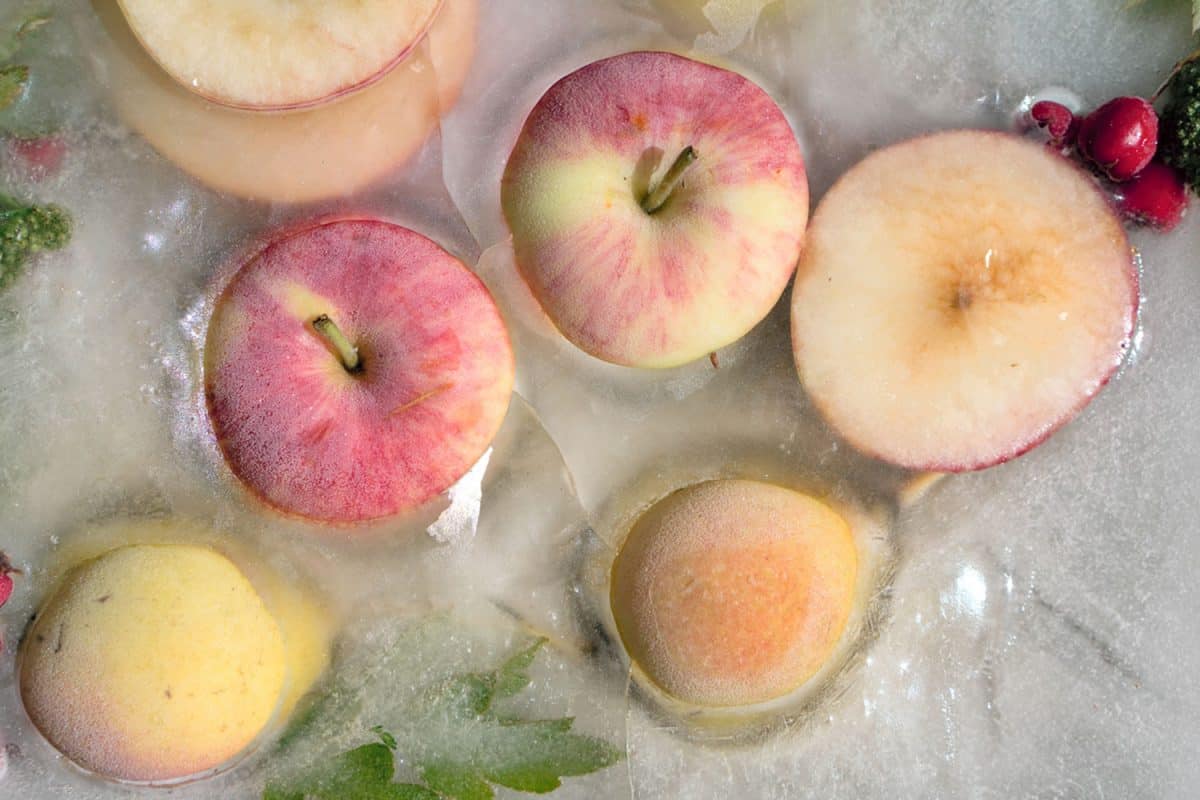
Although it’s okay to put whole apples in the freezer directly, take note of some things to ensure the fruits stay fresh for extended periods. Taking the extra effort will also make it easy when you want to eat a fresh apple from the freezer.
How to Freeze Whole Apples
- Rinse the whole apples with cold or lukewarm water.
- Peel the apples (optional).
- Place the fruits on cookie sheets.
- Put the sheets in the freezer.
- Leave for a few hours or until the fruits are frozen.
- Take the whole apples out and place them inside tightly-sealed freezer bags.
- Place the bags in the freezer.
Take note that whole apples freeze better when they’re not in clumps. Therefore, only put one or two apples in one freezer bag for proper storage. Additionally, you can peel the apples before rinsing them. But according to an article from the Harvard School of Public Health, eating apple peels help prevent free radical damage in the heart and blood vessels.
Furthermore, whole apples take up more space in the freezer than their sliced counterparts. Nonetheless, freezing complete, unpeeled apples allows you to preserve the skin, which you can use for recipes like apple tea, salad garnishes, and fruit smoothies.
What is the Best Temperature to Freeze Apples?
Whole apples begin freezing at 28.5 degrees Fahrenheit (-1.94 degrees Celsius). But the freezer shouldn’t go beyond 0 degrees Fahrenheit (-17.78 degrees Celsius). If the freezer produces temperatures below 0 degrees Fahrenheit, the risks are greater for damage to form the longer the fruits stay in the appliance.
Apples that stay in a freezer that produces temperatures below 0 degrees Fahrenheit will only weaken their shelf lives slightly. But several nights with those temperatures can ruin the apples’ skin and flesh, making them unpleasant for consumption.
How Long do Fresh Apples Last In The Freezer?
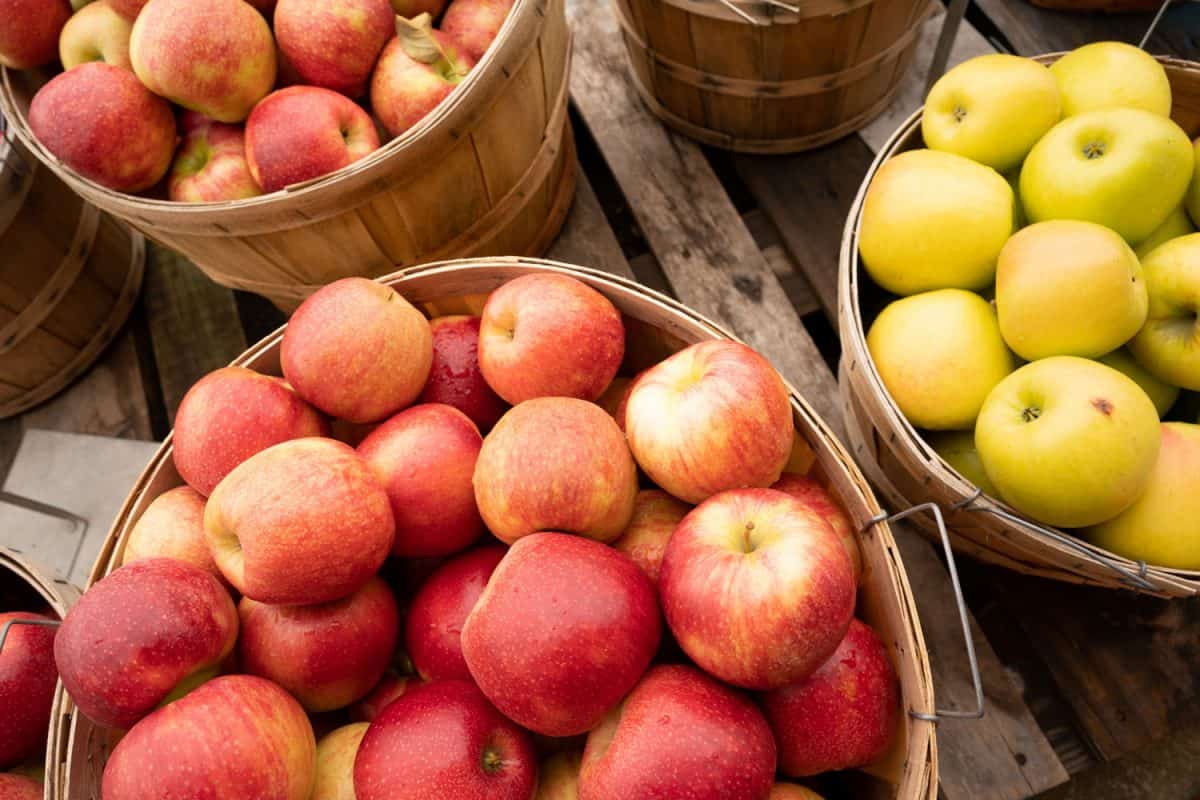
Properly stored fresh apples last about 10 months to a year in the freezer. The fruits can stay in the freezer longer than a year with minimal risks of harm upon consumption. However, the fruits’ crispness and taste won’t be as great. Additionally, the freezer should maintain a consistent freezing temperature to safeguard the apples’ flavor and texture.
How do You Thaw Frozen Apples?
Thawing frozen apples for baking only requires the removal of the fruits from the freezer. Then, place the apples on a surface at room temperature overnight. Thawing whole apples slowly helps preserve the fruits' tissues, preventing excess moisture buildup, sogginess, and bruised texture during baking.
On the other hand, thawing apples for cooking doesn’t require overnight thawing. Instead, rinse the apples in cold or lukewarm water until they thaw. You can use partially-thawed apples for recipes like jellies and sauces.
What to Do With Frozen Whole Apples?
Frozen whole apples can be eaten raw after letting it thaw partially. Apples that lingered in freezing temperatures for extended periods can be tough to bite into. Thaw the whole apple at room temperature until you feel its thickness soften slightly. You can also slice the frozen whole apples to create different dishes like apple cakes and pies.
Can You Freeze Raw Apple Slices?
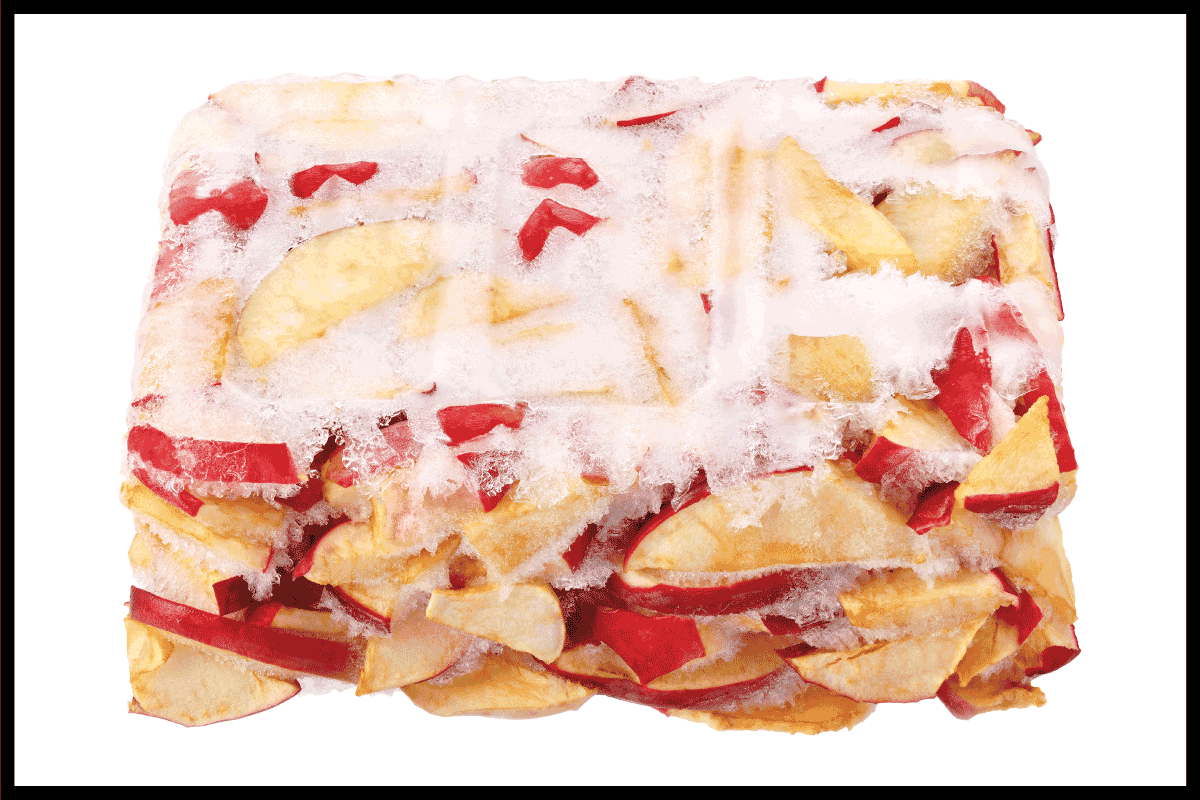
Yes, you can freeze raw apple slices. But take note that the freezing process is slightly different than storing whole apples in the freezer. Here’s how to freeze apple slices:
- Slice apples to desired thickness
- Treat the slices using a produce protector to prevent browning
- Lay the slices on a metal baking sheet
- Put the sheet in the freezer at freezing temperatures for a couple of hours or until frozen
- Transfer the apples to tightly sealed freezer bags
- Remove as much air in the bags to preserve the apple slices’ taste and texture
Can You Eat Frozen Apples?
Yes, you can eat frozen apples. Take note that the longer apples stay in freezing temperatures the softer and less tasty they become. It’s best to label the freezer bags with the date you placed the fruits in the appliance to keep track of their freshness.
Understand that eating or using fresh, frozen apples is better for cooking and baking than apples that stayed in the freezer for a long time. Therefore, it’s up to user preference if cooking, baking, or eating the frozen apples raw is better as long as the fruits used are still reasonably fresh.
Final Words
Freezing apples whole can help preserve their aroma, flavor, and texture for many months. Choosing the right apples and following the proper freezing method ensures the fruits retain their freshness, regardless of the consumption method used. For more information about freezing food items properly, check out ForFreezing.

